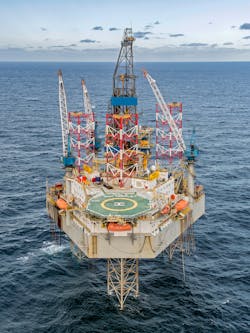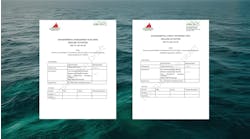The offshore drilling industry is facing the direst moment in its 73-year history. With the collapse in oil prices and the growing coronavirus pandemic, operators and E&P firms are canceling and deferring tenders and terminating rig contracts in a rapid succession.
The consensus among offshore drillers is that things will almost certainly get worse before they get better. This was the major conclusion of a recent report issued by Westwood Global Energy Group’s RigLogix service. Most of the nearly 300 drilling programs that currently have 2020 start dates will be delayed, the consulting firm says.
Operators are typically cutting planned 2020 capex by 20-30%in response to falling oil prices, and the coronavirus is impacting movements of personnel and equipment/services to and from rigs. This all means the number of idle rigs will soon increase substantially.
Already there has been a steady surge of contract cancellations and terminations. Drilling contractors could be facing a combined loss of revenue of around $3 billion in 2020 and 2021, says Rystad Energy. The analyst estimates the total value of agreed contracts over the two years at $30 billion. So far, in the present crisis, six rig years of contracts have been canceled, amounting to around $400 million in value, and more look set to be called off as operators cut capex budgets and delay projects.
“More than $22 billion in contract value was wiped off the books as a result of contracts being cancelled between 2014 and 2017,” said Oddmund Føre, Rystad head of Offshore Rig Market Services. “Now, in the infancy of a new downturn, a market that was only beginning to return to a healthy level of contracting activity, contract volumes and day rates has seen its hopes crushed.”
Five years ago, following the previous oil price collapse, E&P companies canceled many contracts and chose not to declare contract extension options, subsequently re-hiring rigs at lower rates. But next year especially, there may be few contracts left for them to cancel. So new contracts could be difficult to secure in the current environment.
“We expect day rates to be pushed down to opex levels once again as the industry now tries to continue to cut costs and improve its performance in a challenging environment,” Føre said.
Evercore ISI sounded similar ominous portents in its Offshore Rig Market Snapshot of April 15, 2020. The report noted that contracting activity fell by almost two-thirds in March, and is on track to trend lower for a third straight month, comparing negatively on a year-over-year basis for a fourth straight month. Only four rig contracts had been announced as of mid-April, trailing well below the 23 contracts announced at this point a year ago. All four contracts were for less than a year, with two contracts each for jackups and floaters but no other discernable trend except declining activity.
Meanwhile, with operators canceling and deferring tenders and terminating rig contracts, drillers have begun to cold stack and retire additional rigs. From mid-March to mid-April, three floaters and a jackup have been cold stacked while four floaters and two jackups have been retired, bringing the industry total to 39 floaters/87 jackups cold stacked (both 17% of the current available supply x-newbuilds) and 141 floaters/109 jackups retired since 2014. Evercore said that it expected a couple more contracts to be announced in the second half of April, but added that “contracting activity is likely to be depressed for several more quarters.”
Some of the more notable recent contract cancellations and early terminations include:





